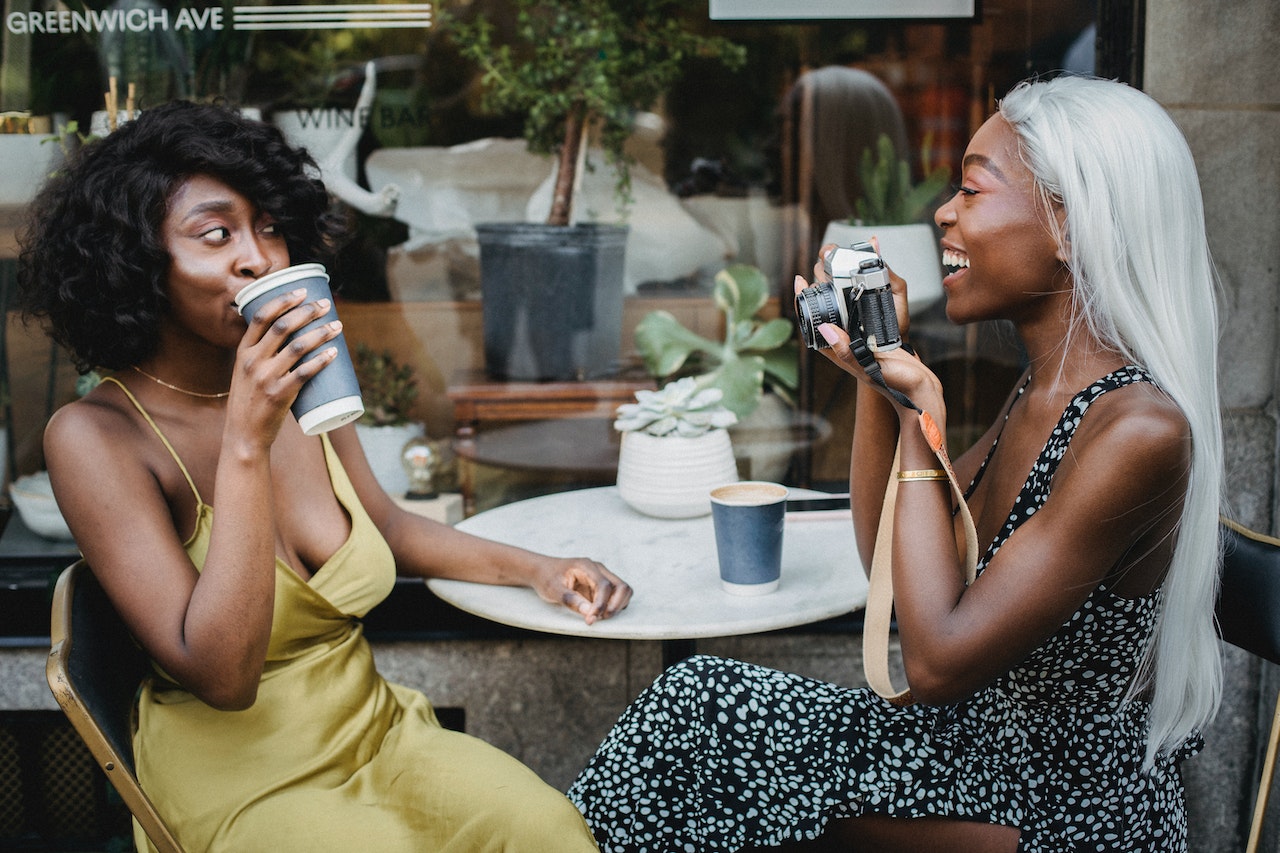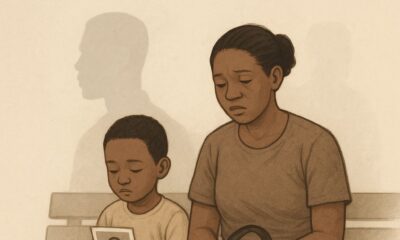Features
Abisola Oladele Tanzako: Dealing with Friendships as an Introverted Millennial Woman
While thinking about writing this piece, I realised that I did not know how to be a friend all my life. I had not at any point learned or studied the art of friendships.

As an introvert, I’d rather crawl through seven pine-filled tunnels than talk to new people. Growing up, I was not big on friends. I grew up timid, but I was not lonely; I always had my brothers and parents to talk to and play with. We spent most days indoors, playing games, reading, watching TV, or talking. My parents barely kept any friendships too. If they weren’t at home, you would mostly find them in one of three other places: church, work, or the market (my mum).
They also made it their job to remind us how important family was. In terms of relationships, I feel like I moved from being a daughter and a sister to being a wife and a mother without necessarily experiencing that period of solitude where you have to rely on friends and friendships for your emotional needs.
While thinking about writing this piece, I realised that I did not know how to be a friend all my life. I had not at any point learned or studied the art of friendships.
My Friendship Timeline
I met my oldest friend when I was 3 years old, and although we are still terrific friends to date, the relationship has fizzled out over the years. I consider her the most amazing and loyal person on earth. If only one person in the world would text me on my birthday, I know it would not be my mum or anyone in my family, but my dear friend, Emem, and she would text at 00:00 sharp.
She has done this consistently for at least 15 years. I, on the other hand, still struggle to remember her birthday. My relationship with Emem may not be deeply emotional, but it’s one of loyalty and commitment. However, that loyalty and commitment remained one-sided as I struggled to remember her birthday (I think it’s either March 11th or 12th), and I honestly cannot remember being there for her the way she was for me.
In university, I took most of my friendships for granted. For most of my time in school, I was either busy studying or being alone, but studying and being alone will only get you a first-class degree, it won’t make you friends to get you through tough times. After university, I worked with some amazing people but it’s only for short periods. I am still friends with some people, we text, share laughs, and exchange pleasantries. I love them, a lot, but I feel like I haven’t put in enough work or made enough exchanges to convert any of them to a deeper level of friendship.
Life and its Curveballs
I’ve been forced to learn about friendships and relationships the hard way. Life has thrown me quite a few curve balls in the last few years, and I am at a point in my life where I crave deep female friendship; one where we are not afraid to speak about anything and everything, stay on the phone for hours and hang out often.
But my nonchalance with my previous friendships has made me doubt if I’m capable of having a sustainable friendship. While navigating some of the most challenging times of my life, all I had was 2 or 3 very close friends. They were with me every step of the way, and truthfully, our friendships became even closer and stronger as a result of the shared experiences during that period.
But I can’t help thinking and asking myself: Would I have sustained those friendships if I wasn’t in a tight spot and going through things I couldn’t share with family members? I do not believe my answer is a yes. Sometimes, when I try to text my friends, I am stopped short, with a hot mix of anxiety and embarrassment. I feel like these people have new lives, new friends, and new besties. Who am I to intrude?
The Friendship Plant and Tree
I’ve been thinking a lot about friendships, and I came up with an analogy that I call “The Friendship Plant.” Friendship is like a plant. It needs water – which is attention and communication, plenty of sunlight – which is quality time, pruning – which is honest feedback and constructive criticism, and lots of soil – which is deep, borderless love. Remove one of those, and your plant will struggle to grow.
Recently, I came across friendship podcaster, Alex Alexander, who describes friendship as a tree with three kinds of roots. In her description, these roots also help the friendship tree survive and when your tree starts to wilt, one or more of these roots may be dying. The roots:
- Shared Experience Roots: They are activities, people, and places we’ve experienced together as friends. It grows from spending time together with your friends.
- Emotional Intimacy Roots: These are the information we know about our friends, memories we share, big and small intimacies/our vulnerability around our friends. In my opinion, this is where the core friendship happens, as it takes intentionality to build this root. Choosing to get to know the people we call our friends, trusting them with our vulnerabilities, and letting them know that they can trust us with theirs as well.
- Story Roots: They are our beliefs about our friendships, often defining our expectations of these friendships. E.g. They are my best friend, so I expect them always to be available when I need them. The thing about these story roots is that they are not always the same for everyone in the friendship.
I agree with Alex’s analogy quite a bit. I’ve shared how some of my friendships have only shared experience roots (school and work), while in others, I couldn’t help but build emotional roots because I was going through difficult times. I have grown story roots in these friendships that I do not think are the same for all the parties involved. Sounds tough.
I have learned that while friendship may have a public aspect that we all see and appreciate, it is essentially a private exchange, built in deep sentiment. As Ralph Waldo Emerson rightly said, “In friendship, sentiment is the relationship.”
It has taken me years to fully understand this core foundation of friendship. For years, I was content calling people my friends while I sat in my comfort zone, doing nothing to make it a friendship. I am looking forward to doing better with friendships. I am open to meeting and making new friends despite my introversion, reviving old friendships, and being very careful to ensure that my plants and trees thrive.
***
Feature Image by Ketut Subiyanto for Pexels





















